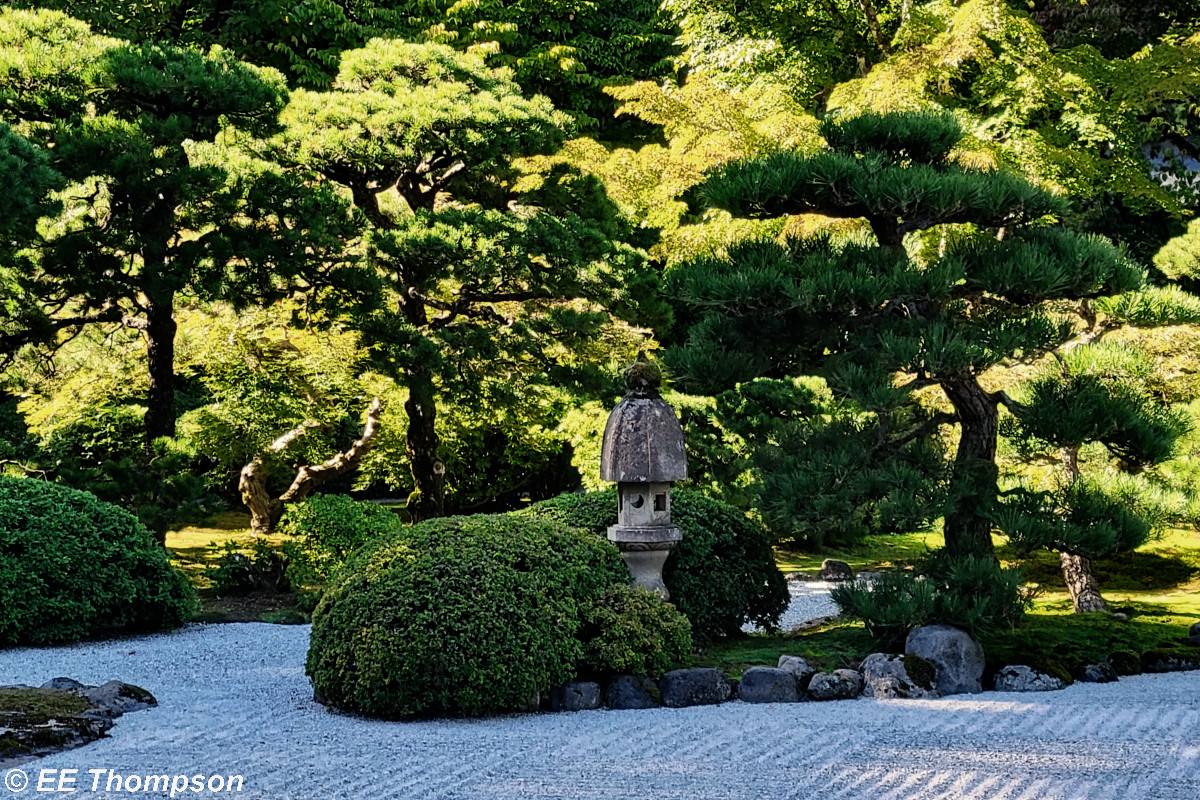Part 1. The Four Noble Truths
One of the big challenges of Buddhism is communication. Language is the primary means that we use to share ideas. It’s so important that the Bible tells the story of the Tower of Babel to explain how languages came to be. Also, many experiences in Buddhism are outside of words. I’ve tried recently to capture a couple of my insights here in articles or poems, but I can’t convey the deep sense of knowing that comes with them.
Part of my recent practice has been going down some etymology rabbit holes. I’ve noticed various teachers and writers use phrases that help me more than some of the oft-repeated phrases. The Buddha’s original teachings were written down in Pali. Other teachings I like to read were written in Sanskrit, ancient Chinese, Japanese, or Tibetan. Translators are diligent, but their experiences, culture, and even their personal use of language can influence their choice of words. As a result, I’m finding that reading multiple translations of teachings or looking at individual words offers me alternative ways of understanding core Buddhist concepts. I will endeavor to capture some alternative language I’ve found helpful here.
Pali words in the noble truths
The Four Noble Truths, a core of Buddhism, are often written as “Life is suffering. Suffering is caused by attachment. Suffering ends through non-attachment. There is a path to end suffering.” There is a way to Lately I’ve started thinking of them a bit differently. The Pali language words associated with the Four Noble Truths are dukkha, samudaya/tanha, nirodha, and magga.
Dhukka: In Pali the world literally means “Standing unstable; unease.” Some scholars also translate it as “pain.” Standing unstable is interesting to me. It has a different English connotation than “suffering.” I read a book where the teacher framed dukkha as “continual dissatisfaction.” This broadens the meaning from the obvious suffering and pain to include those small, everyday, niggling doubts and anxieties.
Samudaya is the origin, arising, or source. That’s straightforward. Tanha is Pali for craving. Upadana means “clinging” but more often as “attachment.” However, its literal meaning is “fuel” or “raw material” as in wood is fuel for a fire. Looking at the Pali, we have craving serves as fuel for clinging. However, Joko Beck frames clinging as “wishing things were different.” Again, this framing encompasses a lot more everyday dukkha.
Nirodha means cessation. “End” is probably the least problematic English translation here
Magga is a “path” in the sense of a road or trail. However, it can also mean “way” or even “oath.” English translators usually use “path” or “road.” I see “way” less frequently.
My Four Noble Truths
Once I looked into this I put the Noble Truths into my own words.
The truth of dukkha becomes “Pain and uneasiness are part of life.” The idea of uneasiness or helps me the most. I don’t spend that much time feeling bad enough that I’d use the word “suffering.” However, I spend plenty of time anxious or uneasy. That’s a whole new area to practice in. I’m tired today, which I dislike. It’s raining, annoyingly throwing my Bay Area vacation plans to see redwoods into disarray. I’m worried about a client at work. All of this is hijacking my attention and creating dissatisfaction. Voila, Everyday dukkha.
The truth of samudaya/tanha becomes “dissatisfaction comes from wishing things were different.” I find that a lot more encompassing than craving and clinging, or attachment. I wish I weren’t tired. I wish I had the motivation to go run. I wish it wasn’t 45 degrees and raining. I wish I could stop worrying about work. This makes the source of my dukkha obvious. I want to swap out my current reality for one I’d like better. I’m not “suffering” as I sit here at my desk, warm and dry, with a good if slightly stressful job, but I’m also not accepting the reality of the moment.
Cessation of dukkha comes from following the path. I used to be among the many Buddhists who thought there was somewhere to go. A way to attain a more desirable state of mind. There are a couple lines in the Sandokai I have come to like because they challenge my conception of the third truth. “When you walk the Way, it is not near, it is not far. If you are deluded, you are mountains and rivers away from it.”
The Mistakes from Misunderstanding
I mentioned hanging out on Reddit. I’ve seen people who are new to Buddhism make the same mistakes over and over again. They see the word “suffering” and immediately assume that Buddhism can solve all of life’s woes. There are a myriad of posts asking how to deal with mental illnesses, some of them severe, grief of loss, or difficult life circumstances like lost jobs or failing in school. The posters believe that somehow they Buddhism will magically remove all the “suffering” and negativity in their lives.
These students react to “attachment” by trying to detach. The reasoning goes that if you don’t love anyone you won’t suffer the pain of loss. Or if you stop caring about grades or your job, flunking or job loss won’t make you “suffer.” A whole different group of posters ask why they feel so disconnected from life. They’ve detached by using a spiritual bypass. By repressing emotions, some people can make themselves numb to where they feel better. Some even meditate themselves into pathological dissociation. My friend who asked about Buddhism knew a bunch of these numb Buddhists and couldn’t figure out why people would want to turn themselves into vegetables.
There are other Reddit posters who have denied themselves all sense-pleasures. While the Buddha taught that indulgence leads to craving, he also explicitly taught the middle way. Young students who are new to Buddhism post about giving up music, friendships, good food, hobbies, or artistic pursuits to try to force themselves on to the the path. They ask why they are isolated and feeling resentful, and why they are suffering more rather than less. Even monastics do calligraphy, garden, cook tasty food, and make their austere dwellings visually appealing.
How I reframe with language
Reframing dukkha as constant mild dissatisfaction has really helped my practice. I can see more clearly where I’m turning normal everyday life into dukkha. In the examples above, I need to just accept my fatigue. It’s unpleasant but I don’t have to layer on the mental burden of wishing I had energy. I can’t change the weather. I’m simply going to be cold and wet going for groceries. Running is hard right now because I’m deconditioned. Of course I don’t want to go. Being a Pollyanna about my job will never work. I need to accept that my deadline is truly impossible, that I’m going to miss it, and that I can’t even predict the outcome.
As I work with Buddhism reframed for modern life in modern language, I see more and more opportunities for practice. Ordinary life is full of small annoyances. Once I see myself wanting to change something I can’t, I can accept the annoyance for what it is and get back to being.





